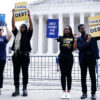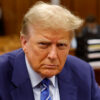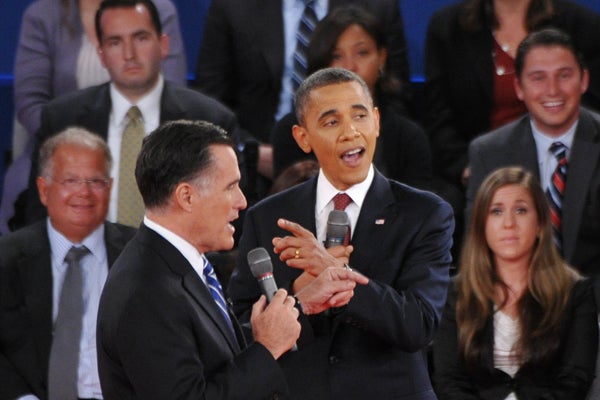President Barack Obama and former Massachusetts Governor Mitt Romney sparred last night in the second of three presidential debates.
Today’s Morning Bell features reaction from numerous Heritage experts. In addition, we’ve compiled a list of the five most factually-challenged statements made during the debate.
Obama falsely claims he called Benghazi attacks “acts of terror” in Rose Garden speech
The president’s claim that he did, contrary to Governor Romney’s critique, call the Benghazi attacks “acts of terror” in a September 12 Rose Garden speech got perhaps the most play of any questionable statement last night. In fact, that claim is false.
In the speech in question, the president vaguely alluded to “acts of terror,” but he did not classify the Benghazi attacks as such. Given that the attacks took place on the anniversary of the most notorious terrorist attack in history, there was by no means a clear implication that the phrase referred to the then-ongoing assaults on American diplomatic facilities across North Africa.
Even moderator Candy Crowley, who insisted during the debate that Obama “did in fact” label the Benghazi attacks terrorism in the Rose Garden, walked back that claim in a post-debate interview. She said Romney’s critique was “right, in the main,” but that he had “picked the wrong word.”
CNN itself noted that the White House acknowledged Benghazi was a terrorist attack for the first time a full nine days after the attacks themselves, as Ezra Dulis of Breitbart News pointed out.
Other reporters likewise declared Romney correct on that score after the debate, including Politico’s Mike Allen, the Washington Post’s Glenn Kessler, and the Washington Times’s Anneke Green.
Obama again misleads on job creation numbers
Obama often insists that 5 million jobs have been created on his watch, and Heritage has addressed that claim before. In order to arrive at this number, the president examines a time frame that is as friendly to his own record as possible. In short, he measures job growth not from the beginning of his term, but from the employment low-point about a year later.
If measured from January 2009, when Obama took office, the country has actually added only about 316,000 jobs. Of course even that overstates the president’s record, since obviously the federal government is not responsible for every job created in the private sector (and the 5 million number actually refers only to private sector jobs – government jobs are down even within the timeframe Obama touts.)
Data visualization expert Matthias Shapiro (also known by his Twitter handle @PoliticalMath) created a very informative video – a bit dated, but still highly applicable – to explain the president’s chicanery on this issue.
Despite Obama’s claims, oil and gas production on federal land is way down
In an exchange about domestic energy production, Obama claimed that American oil and gas companies are “actually drilling more on public lands than in the previous administration.”
In fact, as Heritage has pointed out, fossil fuel production of federal land hit a nine-year low in 2011. ABC’s Jonathan Karl also noticed this disconnect. “Oil drilling permits on public land dropped by 37% in the first two years of the Obama administration, [and] 42% in terms of leases for natural gas,” Karl noted.
Romney inflates the alleged effect of Chinese currency manipulation on U.S. job growth
Governor Romney, who has frequently criticized China for “cheating” through alleged currency manipulation, falsely suggested that that currency manipulation has a significant effect on U.S. employment. As Heritage’s Derek Scissors noted in a recent report:
[T]he exchange rate between the yuan and the dollar has no direct effect on American prosperity or American jobs. It never has. Seventeen years ago, China sharply devalued the yuan against the dollar. Yet American unemployment fell for years afterward. Since 2005, the PRC has been slowly raising the value of its currency, which is what protectionists say they want. And American unemployment has soared.
Obama claims he saved the auto industry. In fact, he just saved the UAW
The president is fond of inflating the impact of his auto industry bailout, and claimed again last night that his administration “saved an auto industry that was on the brink of collapse.”
But government involvement in the General Motors and Chrysler bankruptcies amounted to a bailout not of the companies themselves, but of their largest union, the United Auto Workers, as Heritage’s James Sherk has noted.
None of that [bailout] money kept factories running. Instead, it sustained the above-average compensation of members of an influential union, sparing them from most of the sacrifices typically made in bankruptcy—a bankruptcy they contributed to.




























